Abstract
OBJECTIVES: This study evaluated a joint initiative of the Social Security Administration (SSA) and the Department of Veterans Affairs (VA) to improve access to Social Security disability benefits among homeless veterans with mental illness. METHODS: Social Security personnel were colocated with VA clinical staff at 4 of the VA's Health Care for Homeless Veterans (HCHV) programs. Intake assessment data were merged with SSA administrative data to determine the proportion of veterans who filed applications and who received disability awards at the 4 SSA-VA Joint Outreach Initiative sites (n = 6709) and at 34 comparison HCHV sites (n = 27 722) during the 2 years before and after implementation of the program. RESULTS: During the 2 years after the initiative began, higher proportions of veterans applied for disability (18.9% vs 11.1%; P < .001) and were awarded benefits (11.4% vs 7.2%, P < .001) at SSA-VA Joint Initiative sites. CONCLUSION: A colocation approach to service system integration can improve access to disability entitlements among homeless persons with mental illness. Almost twice as many veterans were eligible for this entitlement as received it through a standard outreach program.
Full text
PDF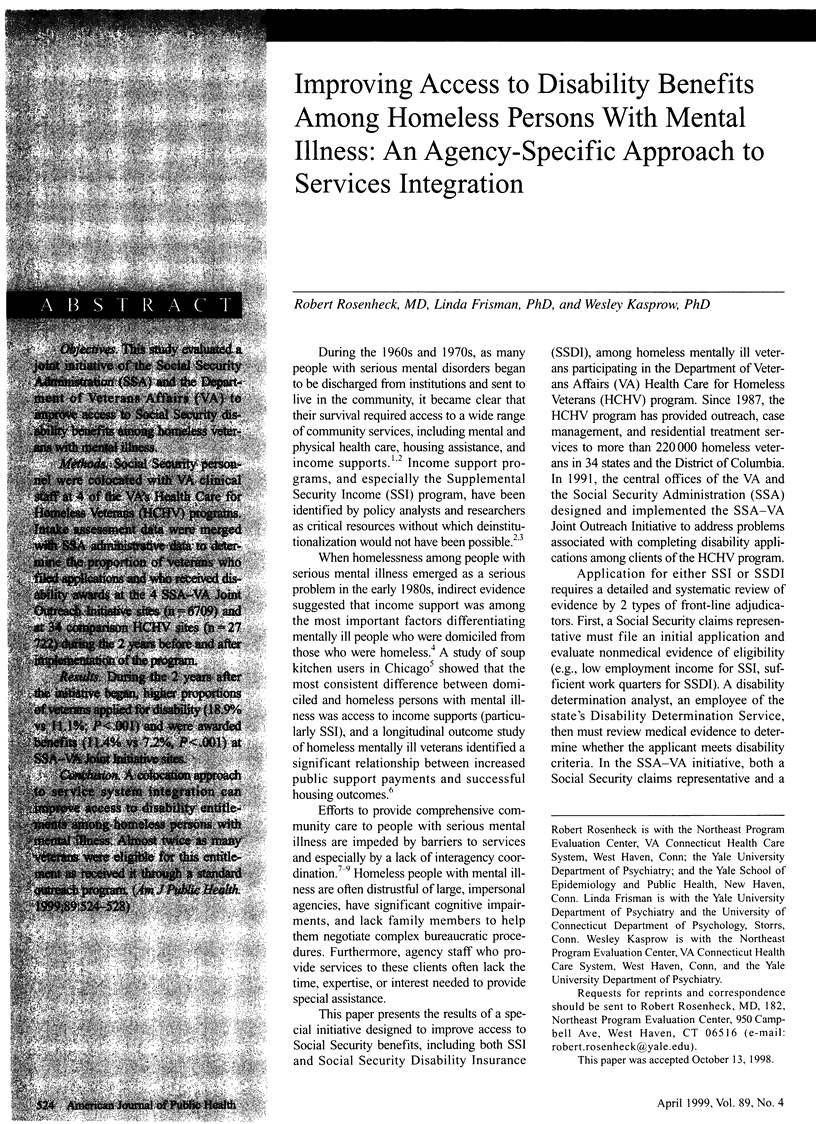
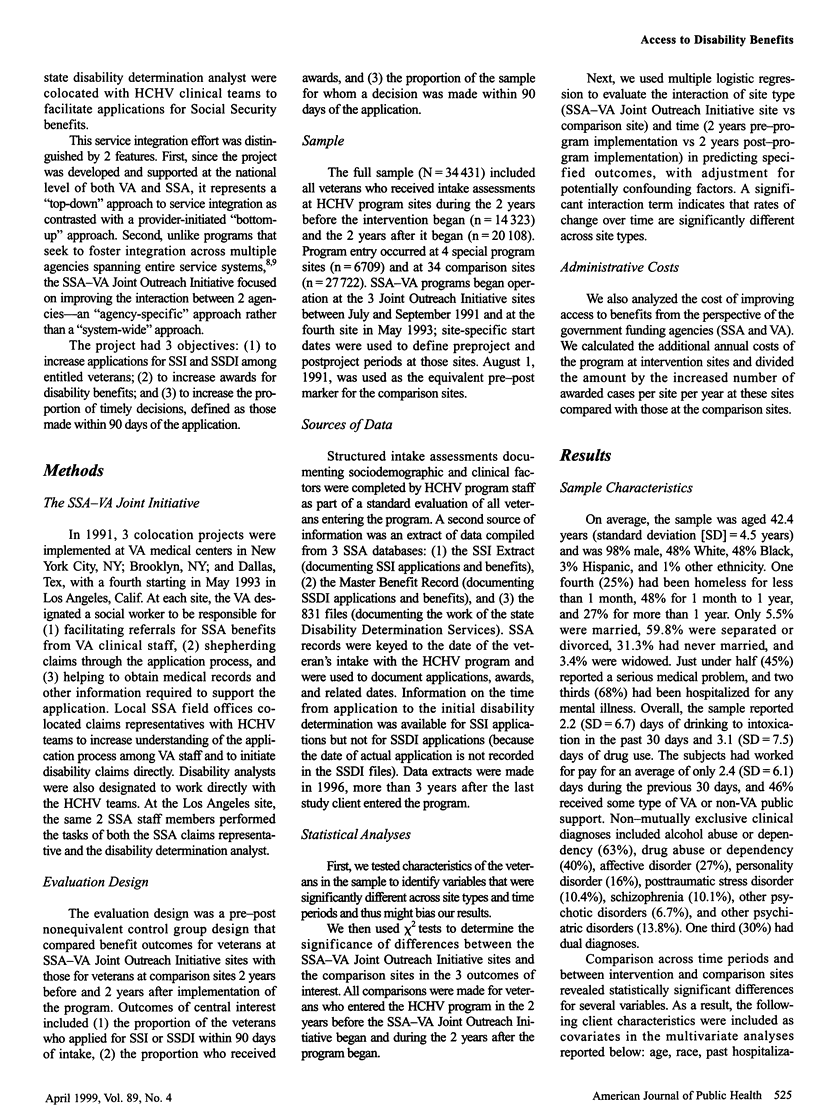
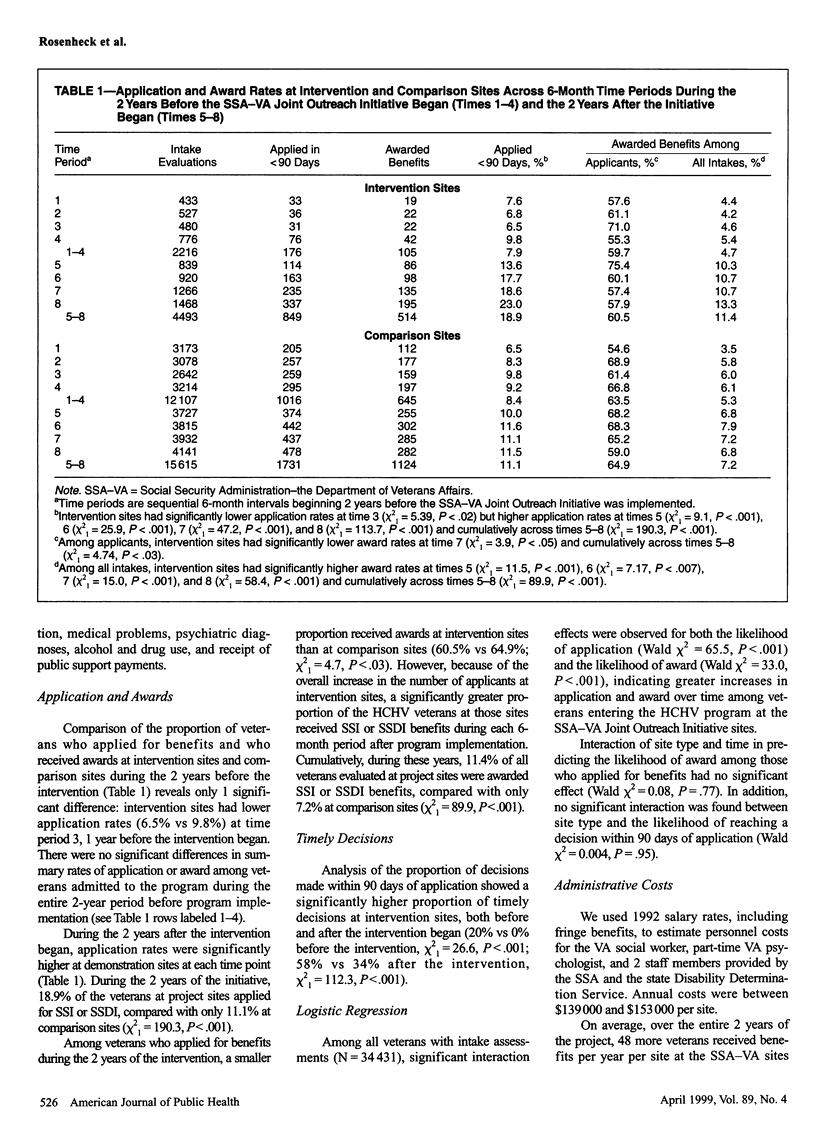
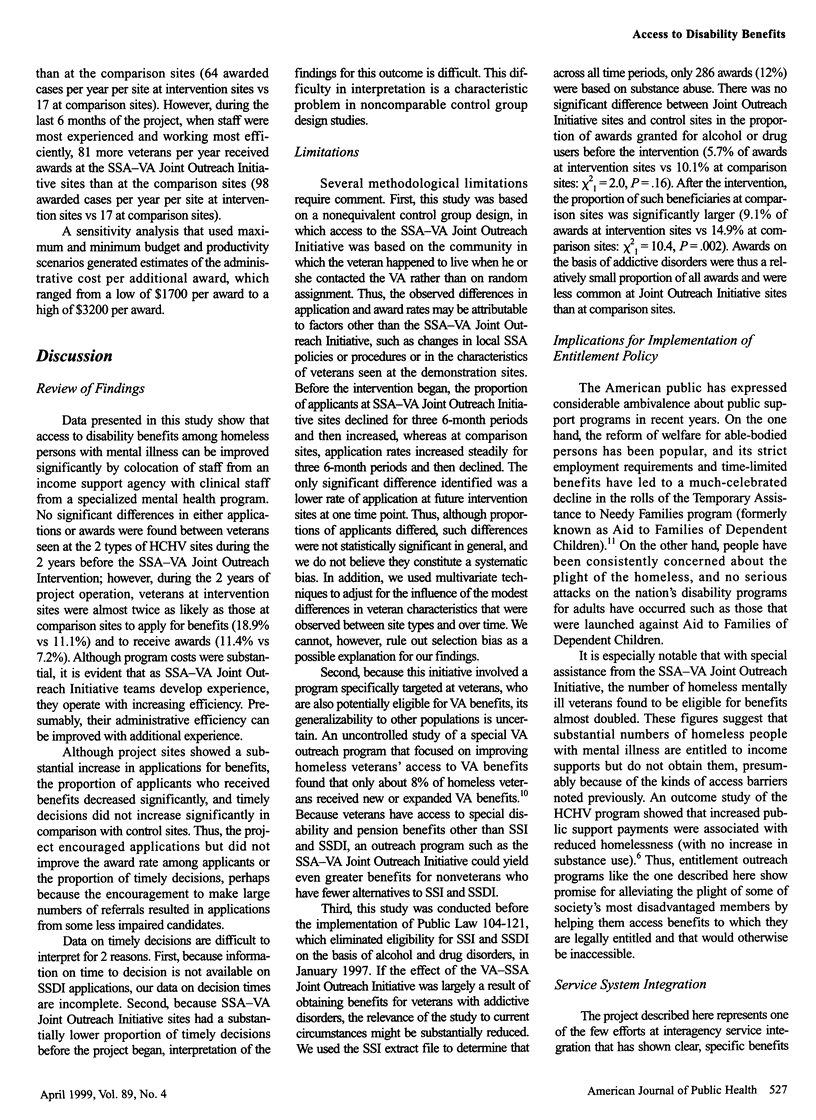
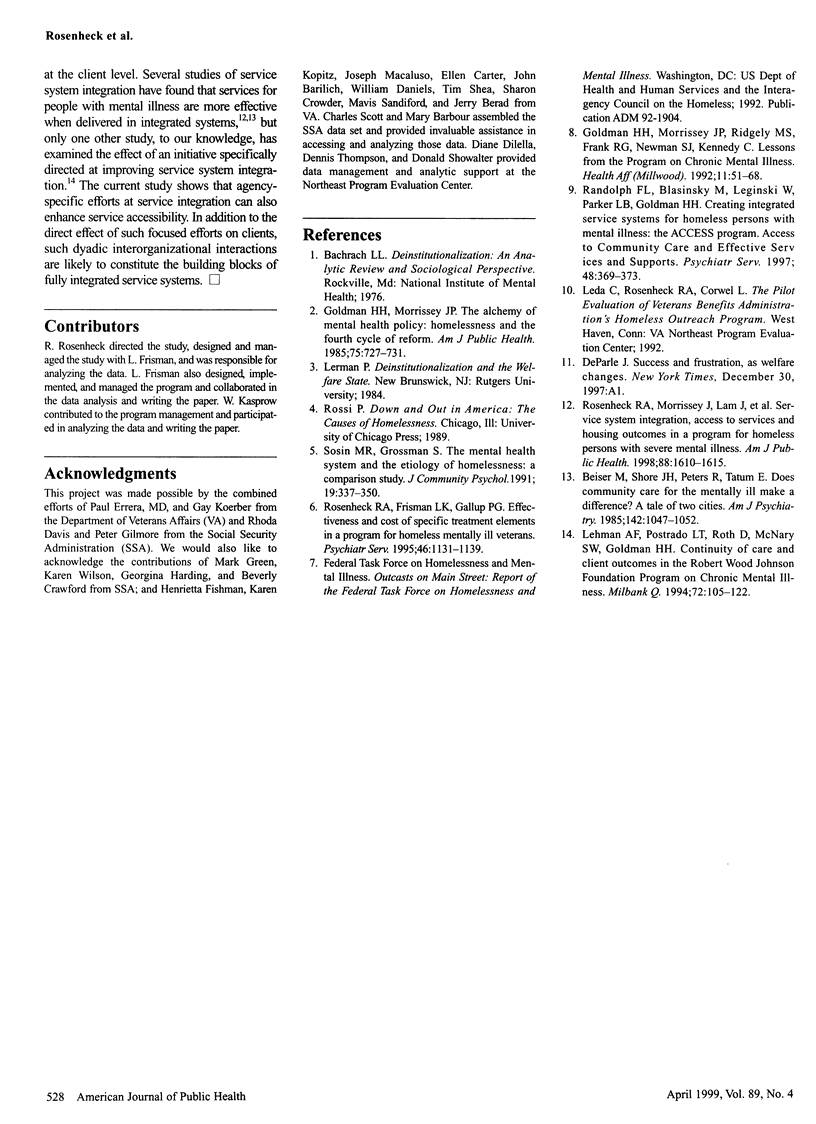
Selected References
These references are in PubMed. This may not be the complete list of references from this article.
- Beiser M., Shore J. H., Peters R., Tatum E. Does community care for the mentally ill make a difference? A tale of two cities. Am J Psychiatry. 1985 Sep;142(9):1047–1052. doi: 10.1176/ajp.142.9.1047. [DOI] [PubMed] [Google Scholar]
- Goldman H. H., Morrissey J. P., Ridgely M. S., Frank R. G., Newman S. J., Kennedy C. Lessons from the program on chronic mental illness. Health Aff (Millwood) 1992 Fall;11(3):51–68. doi: 10.1377/hlthaff.11.3.51. [DOI] [PubMed] [Google Scholar]
- Goldman H. H., Morrissey J. P. The alchemy of mental health policy: homelessness and the fourth cycle of reform. Am J Public Health. 1985 Jul;75(7):727–731. doi: 10.2105/ajph.75.7.727. [DOI] [PMC free article] [PubMed] [Google Scholar]
- Lehman A. F., Postrado L. T., Roth D., McNary S. W., Goldman H. H. Continuity of care and client outcomes in the Robert Wood Johnson Foundation program on chronic mental illness. Milbank Q. 1994;72(1):105–122. [PubMed] [Google Scholar]
- Randolph F., Blasinsky M., Leginski W., Parker L. B., Goldman H. H. Creating integrated service systems for homeless persons with mental illness: the ACCESS Program. Access to Community Care and Effective Services and Supports. Psychiatr Serv. 1997 Mar;48(3):369–373. doi: 10.1176/ps.48.3.369. [DOI] [PubMed] [Google Scholar]
- Rosenheck R., Frisman L., Gallup P. Effectiveness and cost of specific treatment elements in a program for homeless mentally ill veterans. Psychiatr Serv. 1995 Nov;46(11):1131–1139. doi: 10.1176/ps.46.11.1131. [DOI] [PubMed] [Google Scholar]
- Rosenheck R., Morrissey J., Lam J., Calloway M., Johnsen M., Goldman H., Randolph F., Blasinsky M., Fontana A., Calsyn R. Service system integration, access to services, and housing outcomes in a program for homeless persons with severe mental illness. Am J Public Health. 1998 Nov;88(11):1610–1615. doi: 10.2105/ajph.88.11.1610. [DOI] [PMC free article] [PubMed] [Google Scholar]


